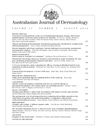 February 2024 in “International journal of biology, pharmacy and allied sciences”
February 2024 in “International journal of biology, pharmacy and allied sciences” Plant-based treatments can effectively and safely treat hair loss.

Nanocarriers with plant extracts show promise for safe and effective hair growth treatment.
 November 2021 in “Journal of pharmaceutical research international”
November 2021 in “Journal of pharmaceutical research international” Herbal depilatories are safer and cause fewer side effects than chemical ones for hair removal.
 January 2019 in “International Journal of Herbal Medicine”
January 2019 in “International Journal of Herbal Medicine” The polyherbal emulgel created for hair care was safe, had good qualities, and could lead to future hair care products.
 17 citations,
April 2021 in “Molecules/Molecules online/Molecules annual”
17 citations,
April 2021 in “Molecules/Molecules online/Molecules annual” Linoleic acid from Malva verticillata seeds may help treat hair loss by promoting hair cell growth and blocking baldness signals.
 November 2023 in “Deleted Journal”
November 2023 in “Deleted Journal” Cedrus libani has potential medicinal uses but needs more safety studies.
 39 citations,
June 2017 in “Journal of Applied Research on Medicinal and Aromatic Plants”
39 citations,
June 2017 in “Journal of Applied Research on Medicinal and Aromatic Plants” Plant-based ingredients are effective and safe for modern skincare products.
 434 citations,
October 2003 in “PTR. Phytotherapy research/Phytotherapy research”
434 citations,
October 2003 in “PTR. Phytotherapy research/Phytotherapy research” Natural products in cosmetics are beneficial for skin and hair care with low toxicity.
 3 citations,
August 2021 in “The Open Dermatology Journal”
3 citations,
August 2021 in “The Open Dermatology Journal” The herbal hair serum improves hair quality and growth, and is a good alternative to traditional cosmetics because it doesn't contain harmful chemicals like parabens and sulphates.
 3 citations,
April 2022 in “Clinical, Cosmetic and Investigational Dermatology”
3 citations,
April 2022 in “Clinical, Cosmetic and Investigational Dermatology” Different methods, including stress management, healthy diet, supplements, and treatments like minoxidil, can help hair grow back after COVID-19 related hair loss.

Topical treatments like minoxidil and corticosteroids are effective for hair loss, with JAK inhibitors promising for alopecia areata.
 January 2023 in “Our Dermatology Online”
January 2023 in “Our Dermatology Online” An old recipe called "Champigny Saumure" might help treat a rare scalp condition.
 2 citations,
January 2023 in “Pharmaceuticals”
2 citations,
January 2023 in “Pharmaceuticals” Natural products and phytochemicals may help with hair regrowth, but more research is needed.
 November 2024 in “Journal of Natural Remedies”
November 2024 in “Journal of Natural Remedies” Herbal ingredients can effectively promote hair growth and improve hair health.
 July 2021 in “IntechOpen eBooks”
July 2021 in “IntechOpen eBooks” Ginseng, especially its component ginsenosides, can promote hair growth, reduce hair loss, and potentially treat conditions like alopecia by affecting cell pathways and cytokines.
 July 2018 in “Madridge journal of dermatology & research”
July 2018 in “Madridge journal of dermatology & research” Cactus-enriched hair oil effectively reduces hair fall and promotes hair growth with no major side effects.
 10 citations,
October 2019 in “Acta Pharmaceutica”
10 citations,
October 2019 in “Acta Pharmaceutica” Medicinal plants are used to treat skin conditions, but more evidence is needed before recommending them widely.
 282 citations,
October 2006 in “The Journal of Clinical Endocrinology and Metabolism”
282 citations,
October 2006 in “The Journal of Clinical Endocrinology and Metabolism” The Endocrine Society advised against routine testosterone therapy for women, citing a need for more research on long-term safety and a clear definition of androgen deficiency.
 251 citations,
October 2014 in “The Journal of Clinical Endocrinology & Metabolism”
251 citations,
October 2014 in “The Journal of Clinical Endocrinology & Metabolism” The guidelines advise against using testosterone and DHEA in women for most conditions due to safety and effectiveness concerns, but suggest considering testosterone for postmenopausal women with low sexual desire.
 July 2016 in “Australasian Journal of Dermatology”
July 2016 in “Australasian Journal of Dermatology” The journal covered various dermatology topics, including treatments, disease management, and research findings.
 1 citations,
April 2024 in “International Research Journal of Modernization in Engineering Technology and Science”
1 citations,
April 2024 in “International Research Journal of Modernization in Engineering Technology and Science” Herbal shampoo cleans hair well and is safer than regular shampoos.
 April 2023 in “Tikrit journal of pharmaceutical sciences”
April 2023 in “Tikrit journal of pharmaceutical sciences” Most people in Tikrit, Iraq, have used herbal medicine, mainly for hair, skin, and digestive issues, hoping for effective treatments.
 75 citations,
January 2014 in “Archiv Der Pharmazie”
75 citations,
January 2014 in “Archiv Der Pharmazie” Jasmonic acid and its derivatives play important roles in plant health and have potential uses in medicine and agriculture.
 1 citations,
December 2023 in “Annals of Phytomedicine An International Journal”
1 citations,
December 2023 in “Annals of Phytomedicine An International Journal” Nanoemulgel improves delivery and effectiveness of plant-based drugs for various conditions.
 1 citations,
January 2016 in “International journal of research in ayurveda and pharmacy”
1 citations,
January 2016 in “International journal of research in ayurveda and pharmacy” The study found that a specific combination of five medicinal plants effectively inhibits the fungus that causes dandruff.
 1 citations,
December 2013 in “Turkderm”
1 citations,
December 2013 in “Turkderm” Use of cosmeceuticals during pregnancy and breastfeeding is not recommended due to insufficient safety data.
 1 citations,
August 2017 in “Semiotica”
1 citations,
August 2017 in “Semiotica” The paper concludes that breast cancer treatment involves complex interactions between medical symptoms, patient experiences, and commercial influences, requiring a holistic approach.
 October 2024 in “Current Trends in Biotechnology and Pharmacy”
October 2024 in “Current Trends in Biotechnology and Pharmacy” The shampoo effectively promotes hair growth and is halal-compliant.
 April 2024 in “Medical & clinical research”
April 2024 in “Medical & clinical research” More research is needed to find the best long-term treatments for Alopecia Areata.

Herbal remedies might help with hair loss but need more research for safety and effectiveness.






























